Can Meditation Make You Feel Exhausted: Meditation has many benefits. It helps reduce stress, improve attention, and feel calm. But some people feel very tired after meditation. If this has happened to you, you may wonder, “Can meditation make you tired?” The answer is yes, and understanding why this happens can help you feel better.
When we meditate, there are five processes that occur that can cause us to feel tired. In this blog post, we will discuss these five processes in detail. Apart from this, in this blog post, we will also discuss in detail how this tiredness can be beneficial for you.
Secondly, in this blog post, we will also know in detail what measures can be taken to overcome this feeling. So, without wasting time, let’s start our blog post.
Key Takeaways
1. Emotional Release: Meditation brings up old emotions, which can make you tired.
2. Deep Relaxation: Meditation can make you feel very relaxed, like you need a nap.
3. Physical Stillness: Sitting still for a long time can make your body feel heavy.
4. Mental Detox: Meditation clears your mind, which can be tiring at first.
5. Energy Shift: Meditation moves energy in your body, which can make you feel drained.
[Can Meditation Make You Feel Exhausted]
Why Might Meditation Cause Exhaustion?
Meditation usually helps you relax and feel refreshed. But feeling tired afterward is not uncommon. Here are some reasons why:
Emotional Release
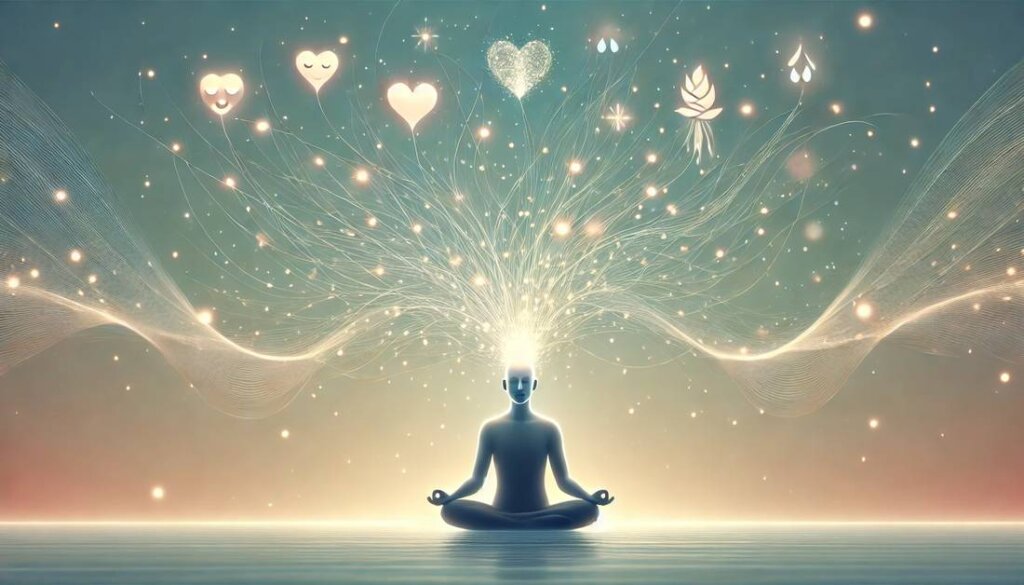
Meditation can bring up old emotions. These might be feelings you have ignored or forgotten about. Processing these emotions can be tiring, just like having a deep conversation or crying can make you feel drained.
When you meditate, you go deep into your mind. This can uncover hidden emotions and past experiences. Dealing with these emotions takes energy. This is like how physical exercise uses energy. Over time, as you process these emotions, you will feel less tired.
Meditation helps you deal with these emotions by bringing them to the surface. This is important for healing and personal growth. But it can make you feel exhausted because your mind and body are working hard.
Imagine you have a box full of old photos and letters. Going through this box can be emotional and tiring. But once you have sorted through it, you feel lighter and more organized. Meditation works in a similar way for your mind and emotions. [Can Meditation Make You Feel Exhausted]
This emotional work requires energy. Your brain and body are processing intense feelings, which can leave you feeling drained. Over time, as you continue to meditate, you will become more skilled at handling these emotions. This will make the process less tiring and more manageable.
Sometimes, the emotions that come up during meditation can be surprising. You might find yourself feeling sad, angry, or even happy for no clear reason. This is normal. It means you are tapping into deeper layers of your mind. These feelings need to be processed and released for you to move forward.
The more you practice meditation, the better you become at navigating these emotional waters. You learn to recognize and accept your feelings without being overwhelmed by them. This emotional resilience makes meditation a powerful tool for long-term mental health and well-being.
Deep Relaxation
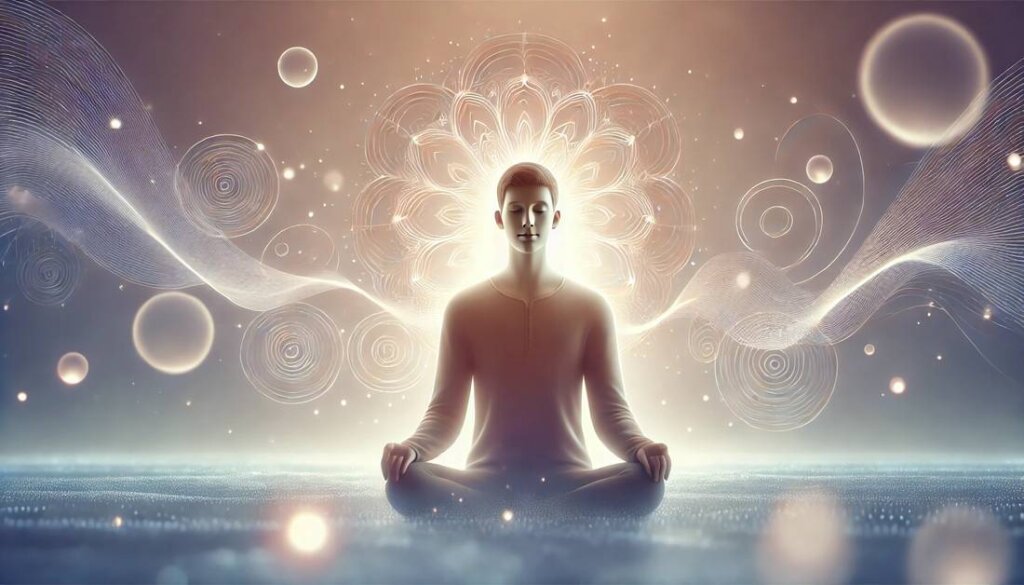
Meditation helps you relax deeply. This can make your body shift from being alert to very relaxed. This change can make you feel sleepy. It’s similar to how a deep massage can leave you feeling drowsy. [Can Meditation Make You Feel Exhausted]
When you relax deeply, your heart rate slows down. Your blood pressure drops, and your muscles loosen. This relaxation can make you feel sleepy because your body is in a state of rest. Over time, this feeling should decrease as you get used to it.
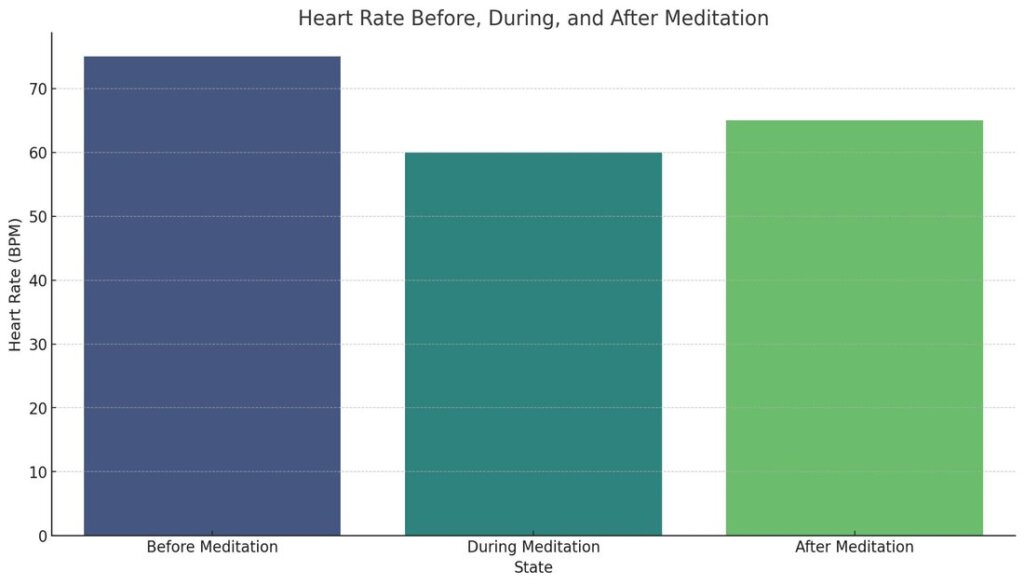
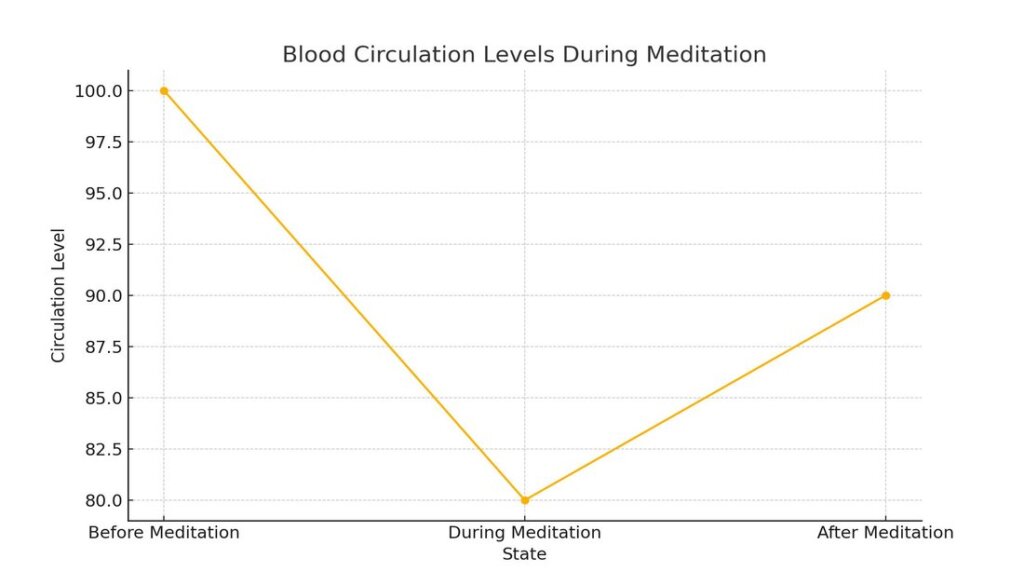
The deep relaxation you achieve during meditation is good for your health. It helps reduce stress and can improve your sleep. But right after meditating, this deep state of relaxation can make you feel like you need a nap. As you continue to practice, you will find that this feeling becomes less intense.
Deep relaxation is one of the main goals of meditation. It helps your body and mind recover from stress. When you meditate, you give your nervous system a break. This is similar to how sleep helps your body recover from the day’s activities. But since meditation is done while you are awake, the transition back to normal activity can sometimes feel abrupt.
Think about how you feel after a long bath or a relaxing vacation. You might find it hard to jump back into your regular routine right away. The same thing happens after deep meditation.
[Can Meditation Make You Feel Exhausted]
Your body needs a little time to adjust from a very relaxed state to being fully alert and active again.
Practicing meditation regularly helps your body get better at making this transition. Over time, you will find that you can move from deep relaxation to normal activity more smoothly. This makes the benefits of meditation even more effective in your daily life.
Deep relaxation during meditation is also a sign that you are doing it right. It means you are allowing your mind and body to let go of tension. This is very healthy and can help prevent many stress-related health problems.
But it is important to remember that, like any new skill, it takes time to get used to. Be patient with yourself as you learn to navigate this deep state of relaxation.
Physical Stillness
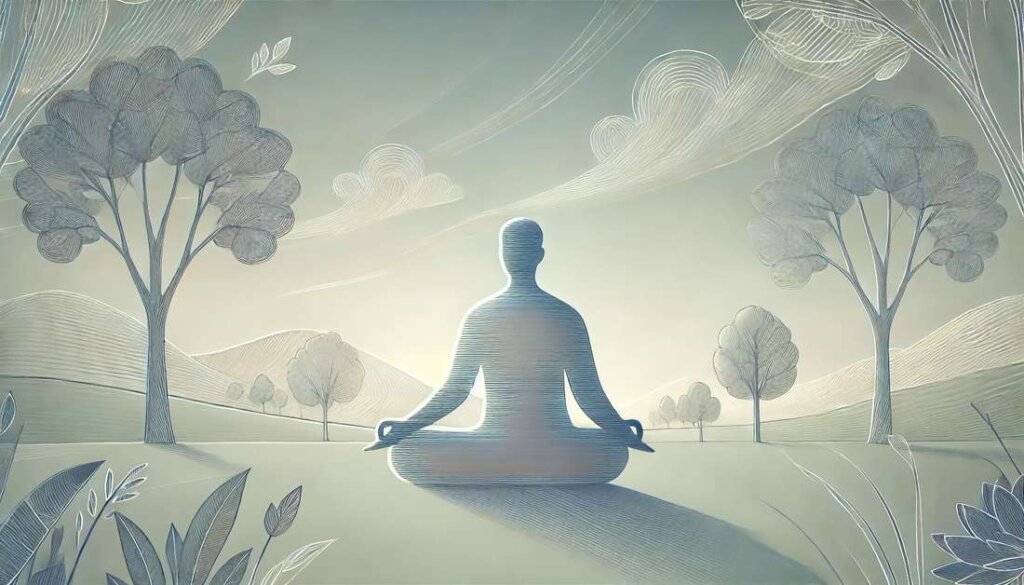
Sitting still during meditation can make your body feel heavy or sluggish. Your body can get used to being still, making it harder to start moving again.
When you sit or lie still for a long time, your blood circulation slows down. This can make you feel heavy or tired when you start to move again. [Can Meditation Make You Feel Exhausted]
Think of it like sitting in one position for a long time. When you stand up, you might feel stiff or slow.
Meditation often involves sitting in one place for a long period. This stillness is good for focusing the mind but can make your body feel slow to wake up afterward. Gentle stretching or slowly getting up can help ease this feeling and help you feel more energized.
Physical stillness is a big part of many meditation practices. It helps you focus your mind and enter a deep state of relaxation. But staying still for too long can make your body feel stiff and tired. This is because your muscles and joints are not used to being in the same position for a long time.
Imagine sitting at a desk for hours without moving. When you finally stand up, your legs might feel heavy, and your back might feel stiff.
The same thing can happen after meditating, especially if you do not move much during your session. This is why it is important to gently move your body after meditating.
Simple stretches can help get your blood flowing again. This makes it easier for your body to transition from stillness to movement. [Can Meditation Make You Feel Exhausted]
You can try stretching your arms above your head, rolling your shoulders, or bending forward to touch your toes. These movements help wake up your muscles and joints.
You can also try walking around your space slowly. This helps get your circulation going and can make you feel more alert. Deep breathing exercises can also help energize your body.
Taking a few deep breaths can help bring oxygen to your muscles and brain, making you feel more awake.
Regular practice of meditation helps your body get used to the stillness. Over time, you will find that you feel less stiff and tired after your sessions. This makes it easier to enjoy the benefits of meditation without feeling sluggish afterward.
Mental Detox
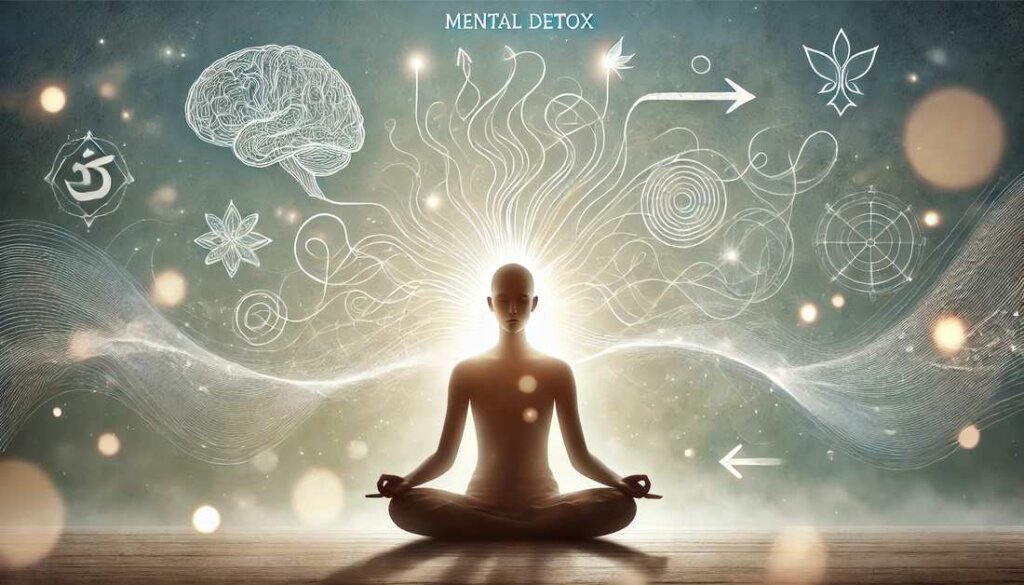
Meditation helps clear mental clutter. This “detox” process can be mentally exhausting, just like how physical detoxification can make you feel tired. The effort of focusing and refocusing the mind can be tiring, much like a mental workout.
Mental detox involves clearing out unnecessary or negative thoughts and emotions. During meditation, you might notice how many thoughts you have. Letting go of these thoughts can be tiring but very beneficial. [Can Meditation Make You Feel Exhausted]
Think of mental detox as cleaning your room. Sorting through your thoughts, deciding which ones to keep and which to let go of, can be tiring. But in the end, you will have a clearer, more focused mind. This can make meditation feel exhausting at first, but over time, it will become easier.
When you meditate, you give your mind a chance to clear out all the clutter. This includes worries, fears, and other thoughts that can make you feel stressed. This process is like cleaning out a messy closet. It takes time and effort, but it feels great once it is done.
Meditation involves focusing your mind and letting go of distractions. This can be hard work, especially if you are used to constantly thinking about many things at once. Your brain is like a muscle. Just like lifting weights can make your muscles tired, focusing your mind can make your brain feel tired.
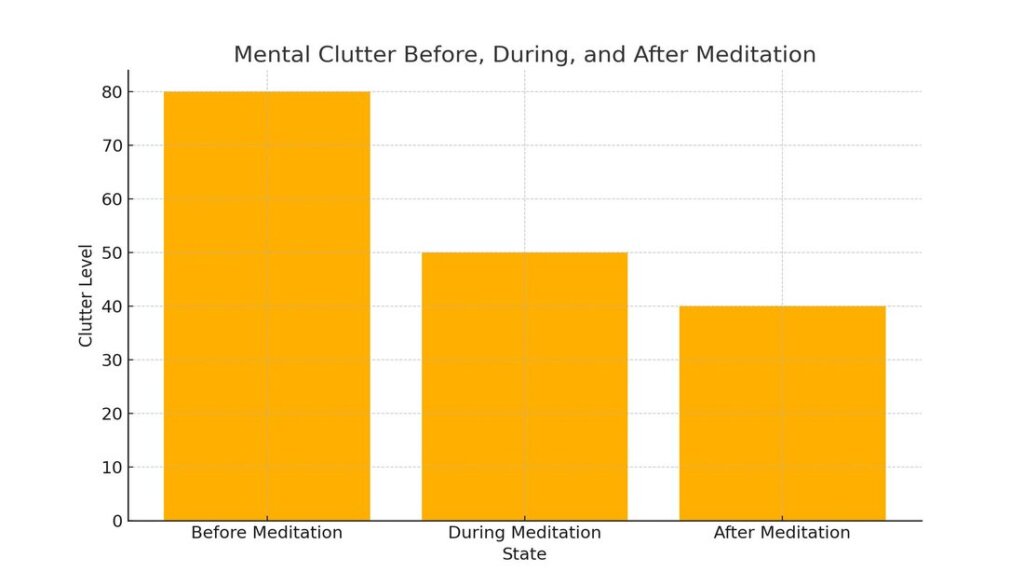
As you practice meditation, you will get better at clearing your mind. This mental detox becomes easier, and you will feel less tired afterward. The key is to be patient and keep practicing. Over time, you will find that your mind feels clearer and more focused, and the tiredness will decrease. [Can Meditation Make You Feel Exhausted]
Mental detox during meditation also helps improve your overall mental health. By regularly clearing out negative thoughts and emotions, you make space for more positive and productive thinking. This can help reduce stress and anxiety, making you feel happier and more at peace.
Energy Redistribution
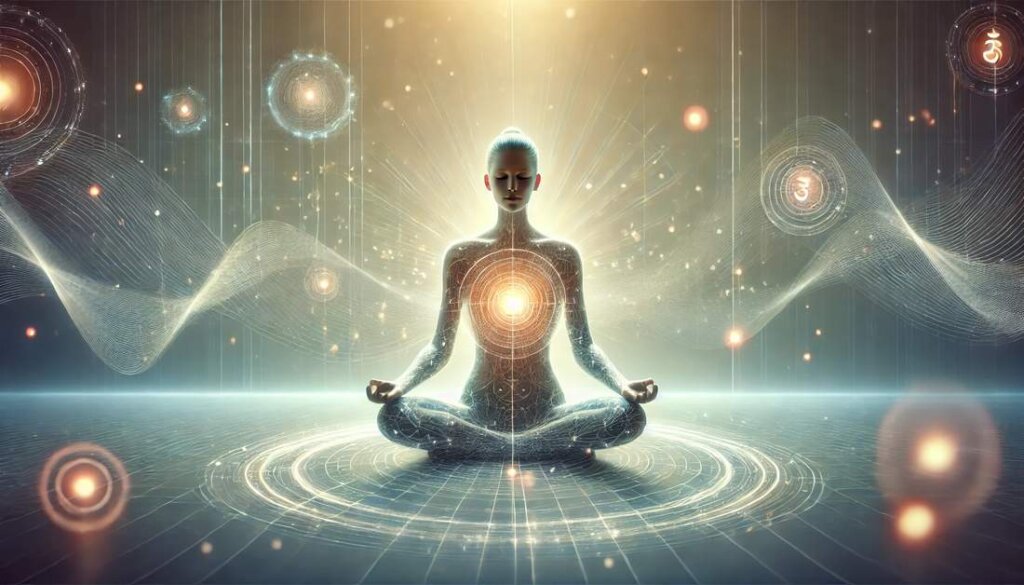
Meditation can move energy within your body. If your energy is focused on healing or balancing certain areas, you might feel drained afterward. This shift in energy can leave you feeling tired as your body adjusts.
In some types of meditation, like chakra meditation, you focus on balancing the body’s energy centers. This can change how energy flows in your body. Your body uses energy to heal and balance itself, which can make you feel tired.
This process is similar to how physical exercise can make you feel tired but stronger over time. Meditation moves energy to where it is needed most. As your body adjusts to these new energy patterns, you might feel tired at first but more balanced and energized later.
Energy redistribution is a natural part of meditation. It helps your body heal and balance itself. When you meditate, you might focus on different parts of your body or on your breathing.
[Can Meditation Make You Feel Exhausted]
This helps move energy to where it is needed most.
Imagine you are watering different plants in your garden. Some plants might need more water than others. Similarly, different parts of your body might need more energy than others. Meditation helps direct energy to these areas, promoting healing and balance.
This movement of energy can make you feel tired at first. Your body is adjusting to new energy patterns, which can be tiring. But over time, as your body becomes more balanced, you will feel more energized and healthy.
Regular meditation helps your body get better at redistributing energy. This makes the process less tiring and more effective. As you continue to practice, you will find that you feel less tired and more energized after your sessions.
Energy redistribution during meditation also helps improve your overall well-being. By regularly balancing your body’s energy, you promote better physical and mental health. This can help reduce stress, improve focus, and make you feel more at peace.
Understanding and Managing Post-Meditation Fatigue
If you find yourself feeling tired after meditation, here are some strategies to help manage and reduce this fatigue:
[Can Meditation Make You Feel Exhausted]
Gradual Transition
Allow yourself time to transition from meditation to daily activities. Slowly reintroduce movement and activity rather than jumping up immediately after your session. Stretching or gentle movements can help reawaken the body and ease the transition.
After meditating, take a few minutes to move slowly. Gentle stretches can help get your blood flowing again. This helps your body adjust from being still to being active again.
Doing a few simple yoga poses or walking around your space can help. Deep breathing exercises can also help wake up your body. This gradual transition makes it easier to move from meditation to your regular activities without feeling tired.
When you finish meditating, avoid jumping up quickly. Instead, take a few moments to stretch and move slowly. This helps your body transition from a state of deep relaxation to regular activity. Try simple stretches like reaching your arms above your head, twisting your torso, or touching your toes.
Walking around your space can also help wake up your body. This gets your blood flowing and helps you feel more alert. Deep breathing exercises are another good way to energize your body. [Can Meditation Make You Feel Exhausted]
Take a few deep breaths, inhaling through your nose and exhaling through your mouth. This brings oxygen to your muscles and brain, helping you feel more awake.
By taking a gradual approach to transitioning from meditation to activity, you can reduce feelings of tiredness and make it easier to get back to your day.
Stay Hydrated
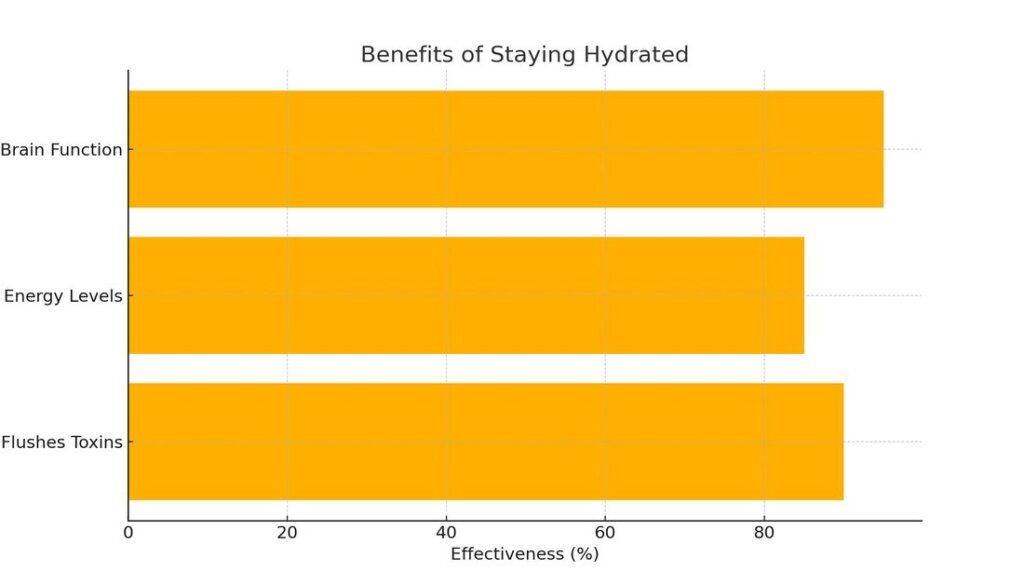
Drink water before and after meditation. Staying hydrated helps maintain energy levels and aids in the detoxification process. Proper hydration is essential for overall bodily function and can help mitigate feelings of sluggishness.
Hydration is important for keeping your body and mind functioning well. Drinking water helps flush out toxins and keeps your energy levels stable. Make it a habit to drink water before and after you meditate.
Water helps your brain work better, too. Dehydration can make you feel tired and less focused. By staying hydrated, you support your brain’s ability to process thoughts and emotions, reducing the chance of feeling tired after meditation.
Make sure you drink plenty of water throughout the day. This helps your body stay hydrated and function properly. Keep a water bottle with you and take sips regularly. (Sources)
[Can Meditation Make You Feel Exhausted]
Drinking water before and after meditation is especially important. It helps your body flush out toxins and maintain energy levels.
Dehydration can make you feel tired and less focused. Your brain needs water to work well. When you are well-hydrated, your brain can process thoughts and emotions more effectively. This reduces the chance of feeling tired after meditation.
Adequate Rest
Ensure you’re getting enough sleep at night. Meditation is a complementary practice, not a substitute for adequate rest. Good sleep hygiene is crucial for maintaining overall energy levels and health.
Meditation can help you sleep better, but it doesn’t replace the need for sleep. Make sure you are getting 7-9 hours of good sleep each night. This will help keep your energy levels up and your body healthy.
Creating a bedtime routine can also help improve your sleep. This might include activities like reading, taking a warm bath, or doing a short meditation before bed. Avoiding screens and caffeine before bedtime can also help you sleep better.
Getting enough sleep is essential for your overall health and energy levels. Aim for 7-9 hours of quality sleep each night. This helps your body recover and recharge.
[Can Meditation Make You Feel Exhausted]
Establishing a bedtime routine can also improve your sleep quality. Try activities that help you relax, such as reading, taking a warm bath, or doing a short meditation before bed.
Avoiding screens and caffeine before bedtime is important. The blue light from screens can interfere with your sleep, and caffeine can keep you awake. Instead, try to create a calming environment that promotes restful sleep. This will help you wake up feeling refreshed and energized.
Balanced Diet
Eating a balanced diet rich in nutrients supports overall energy levels. Incorporate plenty of fruits, vegetables, and whole grains. Proper nutrition provides the body with the necessary fuel to function optimally.
A healthy diet gives your body the energy it needs to handle meditation and daily activities. Foods rich in vitamins and minerals help your body recover and stay strong. Eat a variety of fruits, vegetables, whole grains, lean proteins, and healthy fats.
Certain nutrients, like B vitamins, iron, and magnesium, are important for keeping your energy levels up. Drinking enough water complements a balanced diet, helping your body absorb nutrients and function well. [Can Meditation Make You Feel Exhausted]
Maintaining a balanced diet is crucial for your energy levels and overall health. Make sure your meals include a variety of fruits, vegetables, whole grains, lean proteins, and healthy fats. These foods provide essential vitamins and minerals that support your body’s functions.
Nutrients like B vitamins, iron, and magnesium are particularly important for maintaining energy levels. Incorporate foods rich in these nutrients, such as leafy greens, nuts, seeds, and lean meats, into your diet. Staying hydrated also helps your body absorb these nutrients and function properly.
Shorter Sessions
If longer sessions leave you feeling exhausted, try shorter, more frequent sessions. Gradually increase the duration as your body adjusts. This can help your body and mind acclimate to the practice without overwhelming them.
Starting with shorter meditation sessions can help you get used to the practice without getting too tired. Try meditating for 5-10 minutes at a time. As you get more comfortable, you can gradually increase the time.
Shorter, more frequent sessions can help build your stamina for meditation. This way, your body and mind can slowly adjust without feeling overwhelmed. Over time, you will find it easier to meditate for longer periods without feeling tired. [Can Meditation Make You Feel Exhausted]
If long meditation sessions make you feel exhausted, start with shorter ones. Try meditating for 5-10 minutes at first. As you get more comfortable, you can gradually increase the duration of your sessions. This helps your body and mind adjust to the practice without feeling overwhelmed.
Shorter, more frequent sessions are a good way to build your stamina for meditation. Over time, your body and mind will become more accustomed to the practice, making it easier to meditate for longer periods without feeling tired.
Grounding Exercises
Incorporate grounding exercises, such as light stretching or walking barefoot on grass, to help stabilize your energy post-meditation. Grounding can help reconnect you with your physical body and the present moment.
Grounding exercises help you feel more connected to your body and the present moment after meditation. Simple activities like stretching, walking barefoot on grass, or sitting quietly can help.
These exercises are easy but powerful. They can help you feel more balanced and less tired after meditating. Adding grounding exercises to your routine can make the transition from meditation to daily activities smoother.
After meditating, grounding exercises can help you feel more connected to your body and the present moment. Simple activities like light stretching, walking barefoot on grass, or sitting quietly can help stabilize your energy.
Conclusion [Can Meditation Make You Feel Exhausted]
Friends, I hope you liked this blog post and through it you have understood why some people feel tired after doing meditation.
If you liked this blog post of mine, then I request you to read my other blog posts as well. In them, I have discussed various topics of meditation in detail, which can be very useful for you.
Secondly, if you have any questions related to this blog post, please ask me in the comment box. I will definitely try to answer your questions.
Finally, I would just like to tell you that feeling tired after meditation may seem strange, but it is normal for many people. Understanding why this happens can help you improve your practice and feel good.
Remember, everyone’s meditation experience is unique. Listen to your body and adjust your practice as needed. If you have concerns, consider talking to a meditation instructor.
So, I hope you too can overcome any initial fatigue and enjoy a more balanced, energetic state by introducing regular meditation into your life with patience and awareness. Thank you.
To read my other blogs: Click here